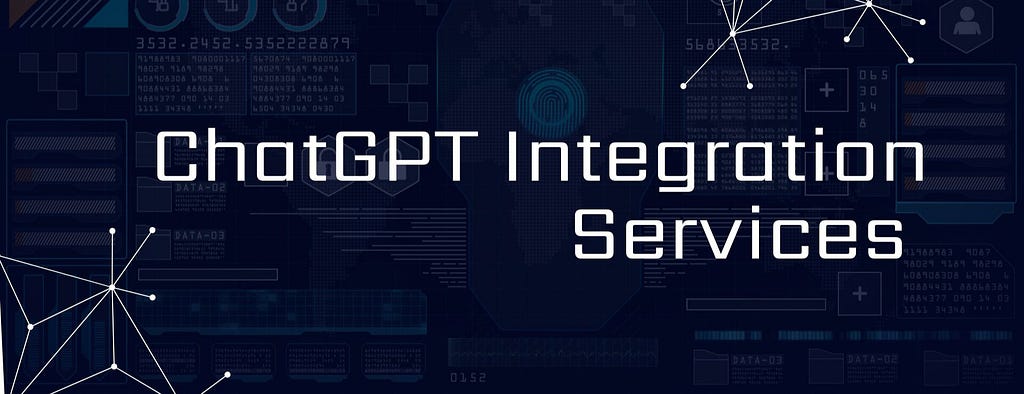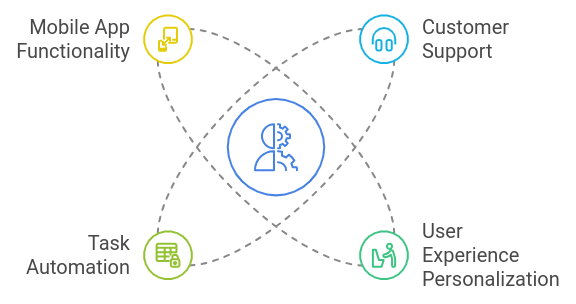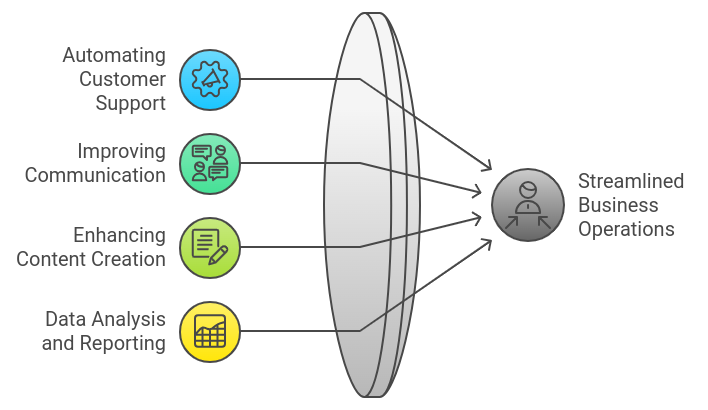Exploring the Versatility of ChatGPT Integration Services Across Platforms
In today’s fast-evolving digital landscape, businesses are increasingly adopting AI to enhance their operations. Among the many tools available, ChatGPT stands out due to its ability to be seamlessly integrated into a variety of platforms. Whether it’s a customer service bot, content generator, or a support system, ChatGPT’s versatility is transforming the way companies engage with users across industries. From tech giants to small startups, the AI integration is reshaping workflows and interactions.

One of the most significant advantages of ChatGPT integration services is its adaptability. Whether implemented on websites, mobile apps, or communication channels like Slack and Microsoft Teams, ChatGPT can optimize user experiences, automate tasks, and even assist in complex decision-making. With the ability to integrate into CRM systems, eCommerce platforms, and social media, it offers immense potential for enhancing customer support, driving sales, and streamlining internal processes.
Table of Content· Why ChatGPT is Ideal for Integration· Integrating ChatGPT on Websites and Mobile Apps
· Leveraging ChatGPT for Social Media and Communication Channels
· Streamlining Business Operations with ChatGPT
· Future of ChatGPT Integration Services
· Conclusion:Why ChatGPT is Ideal for Integration
ChatGPT, powered by OpenAI, is a versatile language model that has become a popular tool for integration in various business applications. Here’s why it’s an ideal choice for seamless integration across platforms:
Natural Language Processing (NLP) CapabilitiesChatGPT excels in understanding and generating human-like responses, making it ideal for conversational interfaces. Its advanced NLP capabilities allow it to handle complex queries, provide context-aware responses, and engage in meaningful conversations. This makes it a valuable addition to customer service, chatbots, and virtual assistants.
Ease of IntegrationIntegrating ChatGPT into existing systems is relatively simple, thanks to its APIs and extensive documentation. Whether it’s embedding ChatGPT in a website, CRM system, or mobile app, the model can be smoothly connected with minimal disruption to existing workflows. Businesses can quickly leverage its capabilities without requiring extensive technical resources.
ScalabilityChatGPT can easily scale to meet the needs of businesses, from small startups to large enterprises. Whether handling a few queries or processing high volumes of customer interactions, ChatGPT can maintain efficiency and responsiveness. This scalability ensures that businesses can rely on it for both small-scale operations and large-scale deployments.
Customization and FlexibilityChatGPT can be fine-tuned to match a specific business’s tone, style, and requirements. This makes it adaptable to different industries, such as e-commerce, healthcare, finance, and education. Customizing its responses ensures that the AI delivers a personalized experience that aligns with a brand’s voice and objectives.
Continuous ImprovementChatGPT benefits from continuous updates and improvements by OpenAI, ensuring that businesses always have access to the latest advancements in AI technology. This guarantees that ChatGPT remains relevant and continues to improve its performance over time.
Integrating ChatGPT on Websites and Mobile AppsIntegrating ChatGPT into websites and mobile apps can significantly enhance user experiences by providing intelligent, real-time interaction. With its advanced natural language processing (NLP) capabilities, ChatGPT can assist in a variety of ways, from answering customer queries to automating repetitive tasks. Let’s explore how integrating ChatGPT into your digital platforms can elevate both user engagement and operational efficiency.
 Enhancing Customer Support
Enhancing Customer SupportOne of the most impactful uses of ChatGPT integration is for customer support. By embedding ChatGPT into your website or app, you provide users with instant access to assistance, available 24/7. Whether it’s answering frequently asked questions, troubleshooting issues, or guiding users through complex processes, ChatGPT can provide immediate, human-like responses, improving customer satisfaction and reducing the need for human agents.
Personalizing User ExperienceChatGPT can be programmed to offer personalized interactions based on user behavior and preferences. For example, an e-commerce website can leverage ChatGPT to suggest products based on previous purchases or browsing history. This personalization creates a more engaging experience for users, leading to higher conversion rates and customer retention.
Automating Routine TasksBy integrating ChatGPT, businesses can automate routine tasks, freeing up valuable resources. For example, ChatGPT can handle booking appointments, processing orders, or gathering feedback, allowing staff to focus on more complex tasks that require human intervention.
Improving Mobile App FunctionalityIntegrating ChatGPT into mobile apps adds a layer of intelligence, transforming them into interactive, helpful tools. Whether for customer service, product recommendations, or onboarding processes, ChatGPT can be embedded within your app to deliver relevant information and solve user issues on the go.
Leveraging ChatGPT for Social Media and Communication ChannelsIn today’s digital age, businesses are constantly looking for innovative ways to engage with their audiences and streamline their communication. One of the most effective tools for enhancing social media and communication channels is ChatGPT. By integrating ChatGPT into your customer service, social media platforms, and internal communication systems, you can significantly boost engagement, efficiency, and customer satisfaction.
Enhancing Customer Support on Social MediaChatGPT can be seamlessly integrated with your social media platforms like Facebook, Twitter, and Instagram to provide instant, personalized customer support. Instead of customers waiting for hours or days to receive responses, ChatGPT delivers real-time answers to queries, helping businesses address common issues or frequently asked questions immediately. This increases response time and customer satisfaction while freeing up human agents to handle more complex issues.
Content Creation and Social Media ManagementManaging social media content and maintaining consistent brand messaging can be time-consuming. ChatGPT helps by generating creative content ideas, writing posts, and suggesting captions that resonate with your target audience. Whether you’re managing Facebook posts, Twitter threads, or LinkedIn articles, ChatGPT can quickly generate content that aligns with your brand’s voice, making your social media presence more engaging and dynamic.
Personalized Communication with ChatGPTWith ChatGPT, businesses can personalize communication at scale. For instance, through direct messaging or automated chatbots, ChatGPT can engage with customers in a conversational manner, addressing their needs, preferences, and concerns. The AI-powered tool can even be trained to recognize specific tones or messaging for different demographics, making your communications more tailored and effective.
Streamlining Internal CommunicationChatGPT can also enhance internal communication within your business. By acting as an intelligent assistant, it helps team members access information quickly, automate routine tasks, or assist in drafting communications, such as emails or reports.This enhances overall efficiency, enabling employees to concentrate on higher-priority, strategic initiatives.
Streamlining Business Operations with ChatGPTIn today’s fast-paced business environment, companies are constantly seeking ways to improve efficiency, reduce operational costs, and enhance customer satisfaction. One powerful tool that is making a significant impact is ChatGPT, an advanced AI language model developed by OpenAI. Integrating ChatGPT into your business operations can help streamline processes and drive greater productivity across various departments.
 Automating Customer Support
Automating Customer SupportOne of the most significant applications of ChatGPT in business operations is in customer service. By using ChatGPT-powered chatbots, businesses can automate responses to frequently asked questions, handle routine inquiries, and provide support 24/7. This reduces the burden on customer service teams, enabling them to focus on more complex issues and improving response times, all while enhancing the customer experience.
Improving Communication and CollaborationInternally, ChatGPT can assist with communication and collaboration. It can help draft emails, summarize meetings, generate reports, and even assist in brainstorming sessions. This can save time for employees, enabling them to focus on higher-value tasks and reducing delays caused by communication bottlenecks.
Enhancing Content CreationFor marketing and content teams, ChatGPT is a valuable tool for generating blog posts, social media updates, and product descriptions. It can help with idea generation, writing assistance, and even editing, ensuring high-quality content is produced at a faster rate. By integrating ChatGPT into the content creation process, businesses can meet their content needs more efficiently while maintaining consistency.
Data Analysis and ReportingChatGPT can also assist in the analysis of large volumes of data. It can quickly interpret business data, generate reports, and provide actionable insights in natural language, making it easier for teams to understand and act upon the information.
Future of ChatGPT Integration ServicesAs artificial intelligence continues to evolve, ChatGPT Integration Services are poised to become an essential part of business operations. The future of these services holds immense potential across various sectors, from customer support to automation, content creation, and beyond.
One of the most significant trends in the future of ChatGPT integration is its increasing ability to understand and generate natural language. As these systems become more sophisticated, they’ll not only handle basic tasks but will also tackle complex inquiries and make nuanced decisions, improving customer satisfaction and operational efficiency. AI-driven chatbots and virtual assistants will be seamlessly integrated into websites, apps, CRMs, and other platforms, enhancing user experiences with personalized, real-time communication.
Automation of repetitive tasks will be another crucial aspect of ChatGPT’s evolution. Businesses will integrate AI more deeply into their workflows, from managing emails and generating reports to scheduling meetings and providing technical support. This automation will allow employees to focus on higher-level tasks, improving overall productivity.
Cross-platform integration is another exciting development on the horizon. In the future, ChatGPT Integration Services will become more versatile, enabling seamless communication across a variety of platforms, including social media, e-commerce, and enterprise software. This integration will create a cohesive customer experience, as users interact with a consistent AI-powered interface across different touchpoints.
Customization and adaptability will also drive the future of ChatGPT services. As businesses increasingly adopt AI solutions, ChatGPT will be tailored to suit specific industries and use cases, offering custom solutions that align with organizational goals. For instance, in healthcare, it could assist with patient queries and appointments, while in finance, it might manage data analysis and client interactions.
Conclusion:As businesses continue to realize the value of ChatGPT across multiple platforms, the potential applications are boundless. Whether it’s creating conversational AI for improving customer engagement or streamlining internal workflows, the integration services bring efficiency and personalized experiences. As technology advances, we can expect even more innovative uses of AI like ChatGPT integration services to emerge across different sectors, redefining how we interact with digital systems.
The future of AI integration, especially with tools like ChatGPT, looks promising. Businesses that adopt these technologies can stay ahead of competitors by providing seamless interactions and building stronger relationships with customers. By embracing ChatGPT’s versatility, organizations are not only optimizing their current systems but also paving the way for future innovation and customer-centric solutions.
FAQs:- What is ChatGPT and how does it work?
ChatGPT is an AI language model developed by OpenAI, capable of understanding and generating human-like text based on prompts.
2. How can ChatGPT improve customer service on my website?
By integrating ChatGPT as a chatbot, businesses can provide instant, round-the-clock customer support, answer queries, and improve engagement.
3. Can ChatGPT be integrated into mobile apps?
Yes, ChatGPT can be integrated into mobile apps to assist users, automate processes, and provide personalized experiences within the app environment.
4. Which platforms can I integrate ChatGPT into?
ChatGPT can be integrated into websites, mobile apps, eCommerce platforms, communication tools like Slack and Teams, and even social media platforms.
5. Is ChatGPT secure for business use?
ChatGPT follows privacy and security guidelines to ensure the safety of user data, but additional precautions like encryption should be considered for sensitive information.
Exploring the Versatility of ChatGPT Integration Services Across Platforms was originally published in Coinmonks on Medium, where people are continuing the conversation by highlighting and responding to this story.
